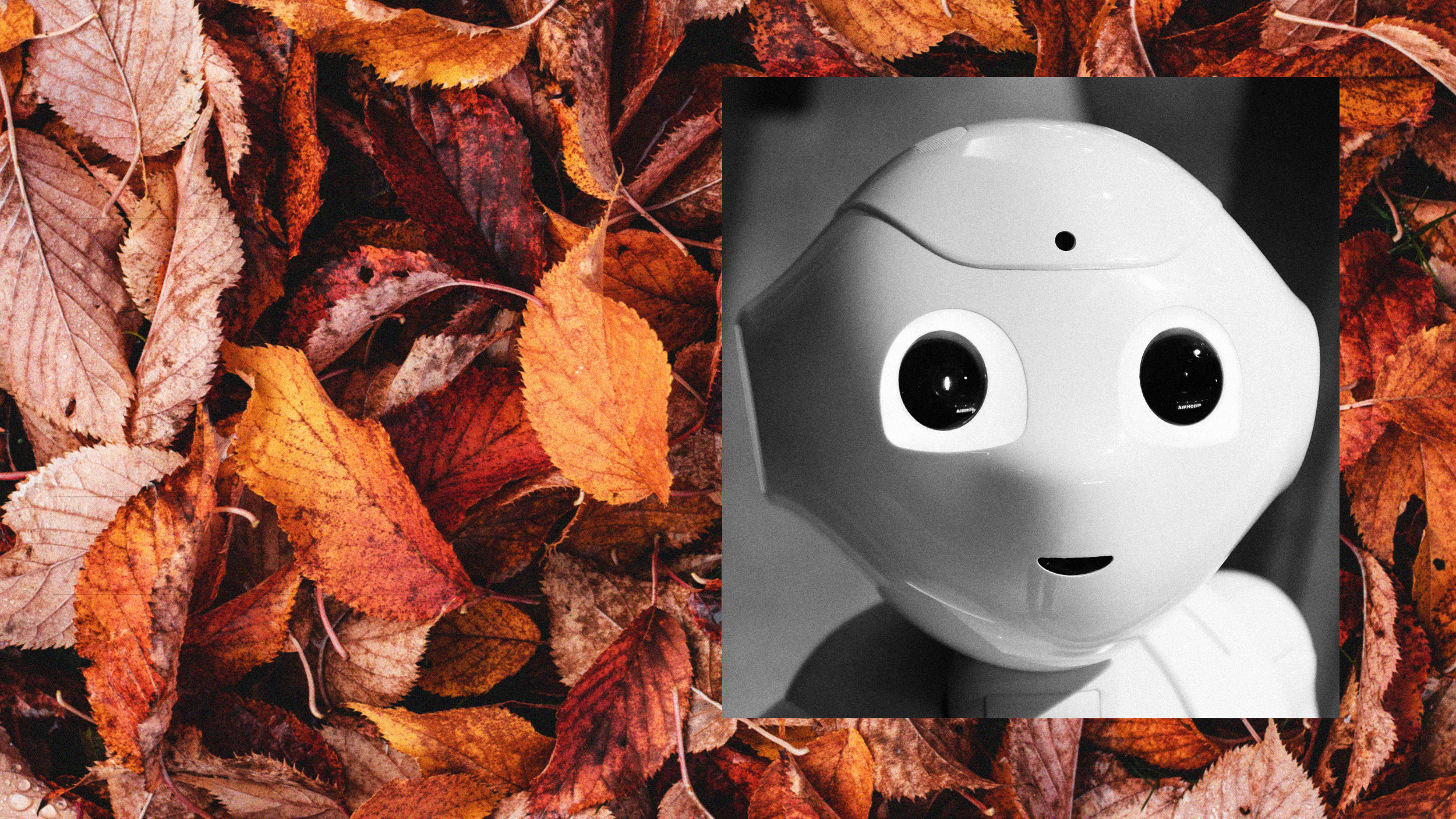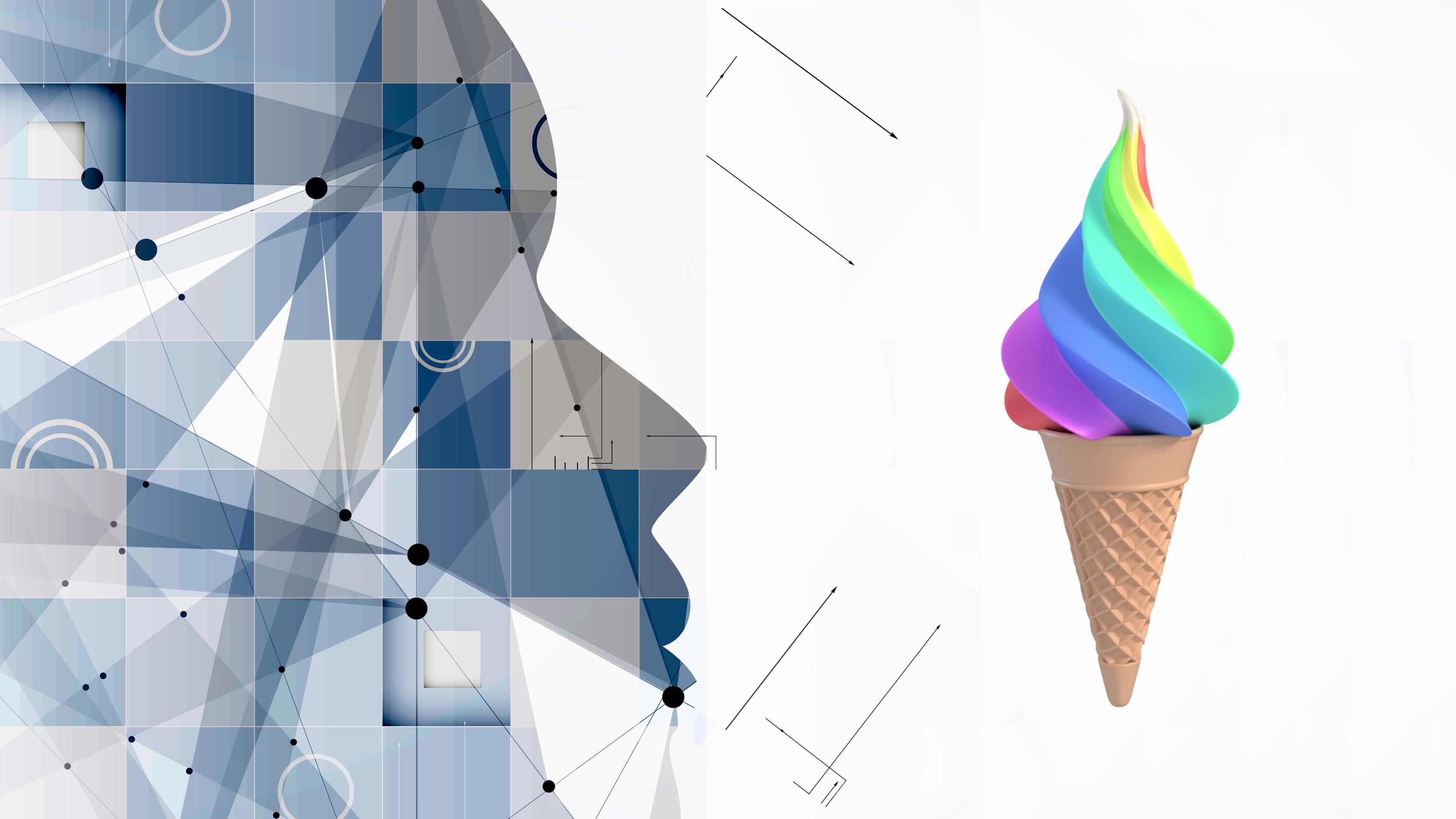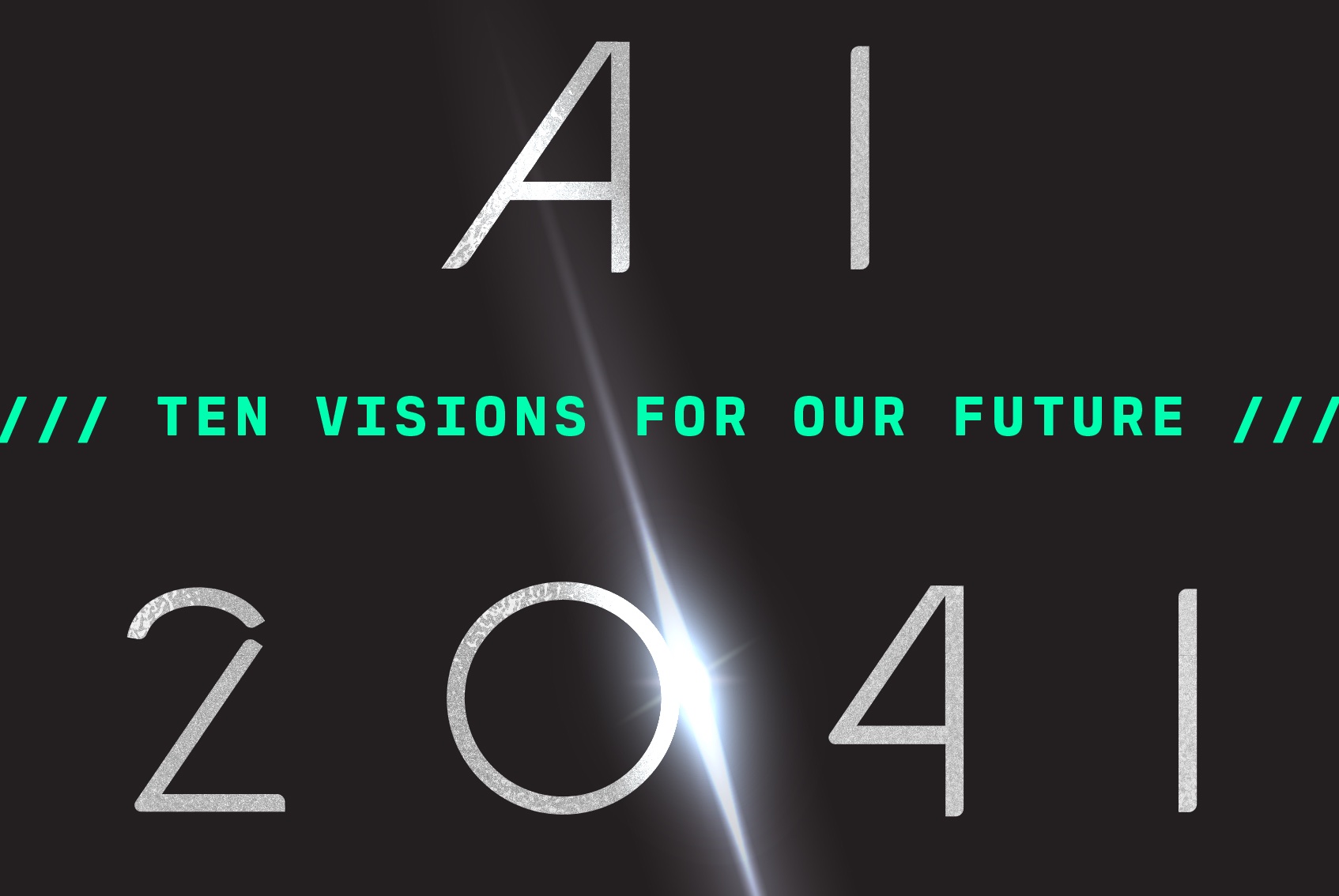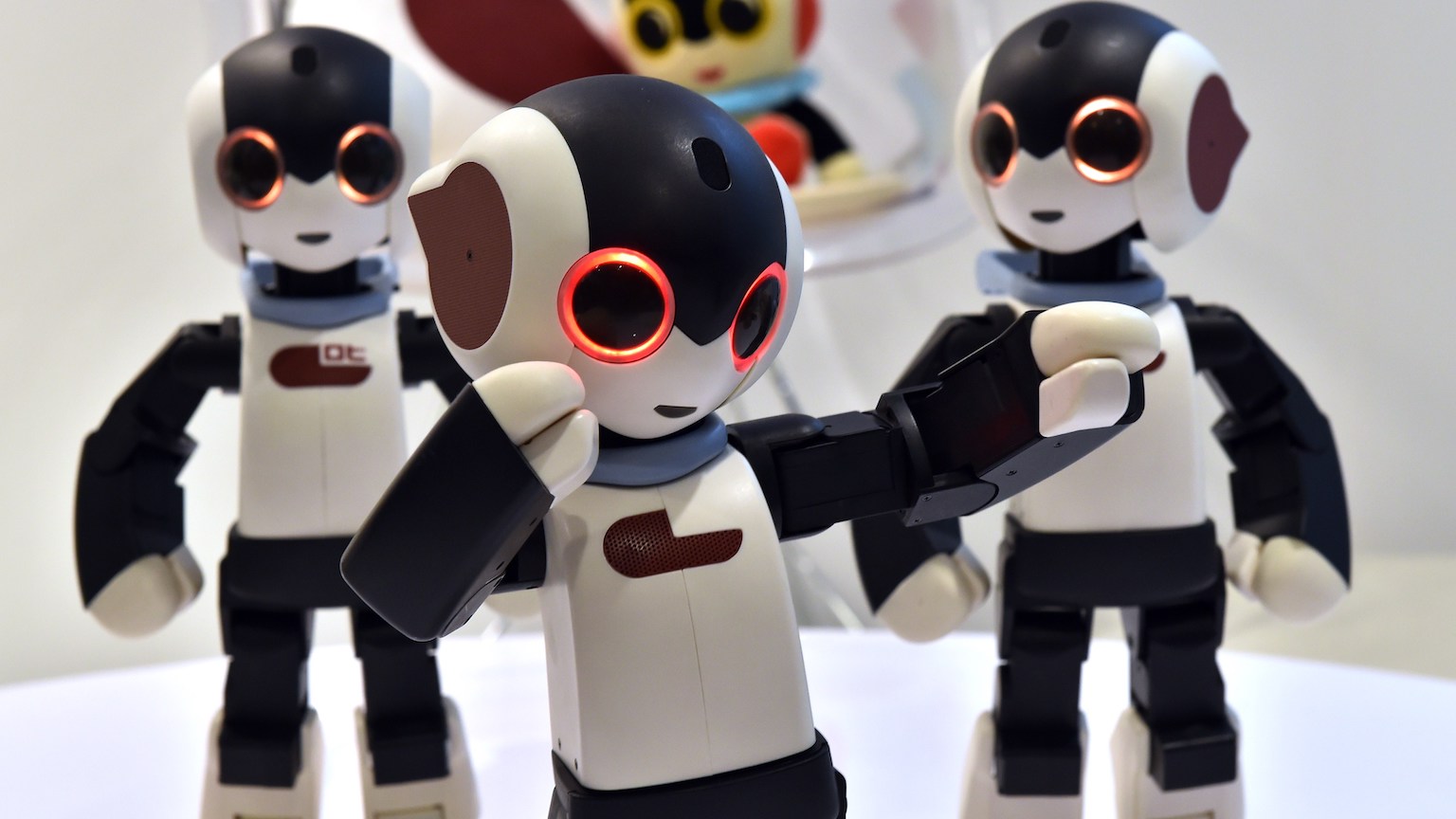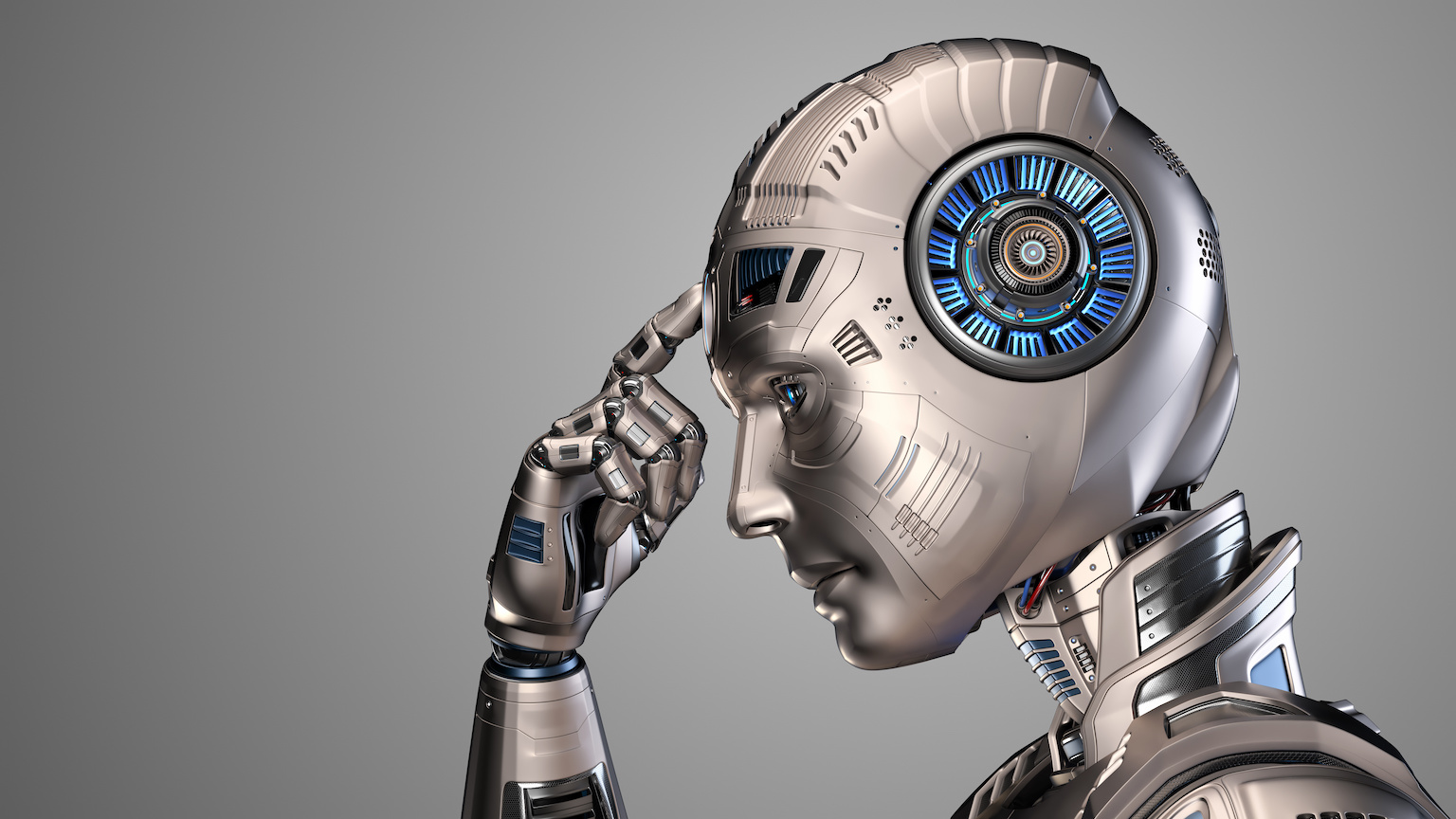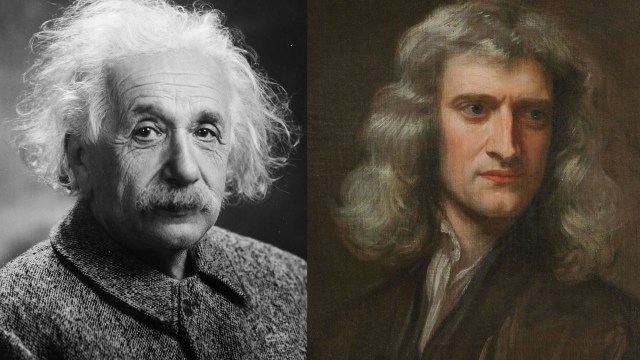We are building a “species-level brain” with big data and ubiquitous sensors
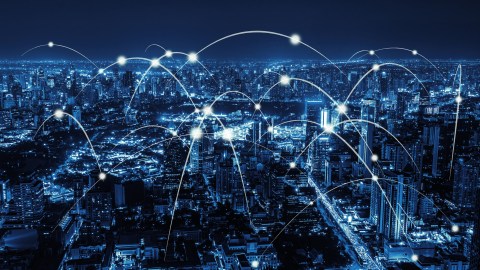
- We are bad at math, poor at reasoning, poor at collecting data, limited in the amount of data we can handle, and unable to comprehend the complexity of the world we are in. Computers with sensors are perfect at math and can be flawless in their reasoning.
- Imagine if the life experience of every person who lives from this moment forward were preserved forever, and that data were used to improve the lives of everyone to come.
- Coupling massive processing power with sensors will create a species-level brain and memory.
Excerpted from Stories, Dice, and Rocks that Think by Byron Reese and published by BenBella Books. Copyright 2022. Republished with permission of the publisher.
Getting clean, labeled data with which to train our AIs isn’t a difficult task per se; it’s just a terribly slow and time-consuming one. Because of this, all the places where we could apply AI are waiting their turn to get their data all sorted out. If all innovation in AI stopped today, we would have decades of work just to do the things we already know how to do with AI.
There are applications of AI where we aren’t the bottleneck, where the data is unambiguous and clean—because that is data recorded by sensors. Sensors are devices designed to gather specific types of information. They have a wider range of capabilities than our biological sensors and can operate in more hostile environments. They are governed by their own form of Moore’s law, so they’re always getting better while their prices constantly fall. To date, we have deployed about a trillion of them. Before sensors, computers were sealed up in boxes with no access to the outside world, relying on humans to spoon-feed them data. When sensors are attached to machines, they can see and hear. They can gather their own data without our involvement at all.
Sensors open up a vast range of new applications for computers. For example, a typical smartphone has a dozen or so sensors that connect it to the outside world. One of these is a location sensor based on GPS. Many phones constantly broadcast their location, completely anonymously. When enough people do this, the traffic flow for the whole country can be recorded in real time. In effect, the computers are replicating our analog world in their digital memory, operating as a sort of digital mirror. So while the traffic flows around the actual streets, it concurrently flows around a virtual one as well. Of course, it is all just a bunch of ones and zeros, but that is what a digital reflection of our analog world looks like.
With this digital mirror, the computers can optimally direct traffic for the whole country. If they see that there are a hundred phones at a certain spot on the interstate that are moving at just three miles per hour, they can reasonably assume there has been a collision there. If they further see that the traffic on the adjacent access road is unaffected, they can route the traffic off the interstate onto the access road. But not all the traffic, just enough to balance things out. The machines can do this without our ever touching the data. This application of computers and sensors is already being utilized and is tremendously beneficial. Every day that the system runs, more data is collected to further train the algorithms, so they always get better. I’ve noticed that the program I use on my phone to route through traffic usually gets my arrival time accurate to within a minute or two. Talk about seeing the future.
With the price of sensors falling, in some cases, to a fraction of a cent, we will be able to build systems like this for more and more parts of our lives, not just traffic. We won’t just computerize everything but sensorize it as well. We’ve already connected fifty billion smart devices to the internet, and we are on a path to fifty trillion.
As we explored earlier, we used to be able to store data only in DNA. Then with writing, data expanded exponentially, creating our virtual genome. Movable type and cheap paper meant the genome grew more, and then with the advent of the digital age, it grew exponentially again. Now you often see statistics like, “We create more data every days than we did since the dawn of time.” Those stats are pretty meaningless since it really is apples to oranges, but they do get at something big, that Agora’s genome is expanding rapidly. Where does this ultimately lead?
Imagine for a moment if we produced so many sensors that we were able to log everything—that is, if we created a digital reflection of not just our traffic but our entire world. What are we likely to record? Everything. Start with every word you say, every place you go. Every person you meet, and everything they say to you. Everything your eye tracks to, along with your physiological response to it. Imagine if every breath you take were logged, and every beat of your heart. Every object you own would be enlivened with sensors. Your clothes, your jewelry, your furniture, all the way down to your toothbrush. Every pot and pan, every appliance. Every utensil would be loaded with sensors that would log the nutrients of every bite you take. When you go to a store, everything you handle but don’t buy will be logged; when you dine out, exactly what you ordered and how much of it you ate will be as well. Every interaction with every person, every flower you stop to smell, how hard you clap at a concert. Every word you type, every dollar you spend.
This will happen, not because Big Brother will force it on us, but because we will demand it. If a spoon can keep me from getting Salmonella, I want one. If a toothbrush can tell me I am coming down with a cold, I want one of those, too.
Perhaps this is your idea of a dystopia. If so, hold on to that thought a minute. For now, just consider the good that it could do.
Recall the five shortcomings of humans that limit our ability to see the future, to be masters of our own fate. We are bad at math, poor at reasoning, poor at collecting data, limited in the amount of data we can handle, and unable to comprehend the complexity of the world we are in. Computers with sensors are perfect at math and can be flawless in their reasoning. They can collect an unlimited amount of data and analyze it as well. And with enough processing power, they can figure out the manner in which everything is connected to everything else.
What sorts of connections are these? No one had any idea that iodine deficiency was so terrible and yet so prevalent in the US. But after iodized salt was introduced in 1924 under the promise that it would eliminate goiter, the IQ of the entire country went up 3.5 points. In states with high levels of iodine deficiency, it went up fifteen points. In the United States, the stereotype of Southerners as lethargic and dim-witted was often true among the poor who went barefoot and picked up hookworms from the soil. It was epidemic in rural areas in the South, and a 1926 study on the topic said that a person infected with hookworm seemed to be “living in another, entirely separate world, and is only remotely in contact with the everyday world about him.” Why did this just pertain to the South? According to the 1940 US census, at that time 94 percent of people in Massachusetts had flush toilets, while only 19 percent had them in Mississippi. Digging the holes in outhouses just a bit deeper drastically reduced the incidence of hookworm. Solving this one problem raised the IQ of the entire region. A similar blight on the South was niacin deficiency due to a largely corn-based diet. Fortifying cornmeal with niacin further increased the overall IQ and solved a host of other health problems. Removing lead from paint increased IQ across the nation, while removing it from gasoline had an even larger impact. Since cities had the highest density of automobiles, they had the highest density of environmental lead as well. Lead from cars is believed to have caused the rise in urban crime throughout the 1960s and 1970s. After its elimination, crime fell and, once again, IQs rose.
A digital mirror of our world would have easily uncovered all of this. The iodine, the hookworms, the niacin, the lead—everything is there in the data, just screaming out at us. But our world is a cacophony of data all screaming at us, and things only randomly rise above the din, such as when some smokers on the antidepressant Wellbutrin reported that their cravings for cigarettes declined, and it was found that the drug is a powerful smoking cessation aid. It’s now sold as such under the trade name Zyban.
History is full of these sorts of random discoveries. People in Russia and Finland used to keep a brown frog in their milk to prevent it from spoiling. Only later did we discover that the frog’s secretions are antibacterial. In World War II, German soldiers in Africa reported that the locals cured dysentery by consuming fresh, warm camel dung, which we now know contains a powerful antibiotic.
One wonders how any of this was discovered. Who was the first person to put a brown frog in their milk and just happen to notice the milk lasted longer? Or who was fond of eating fresh camel feces and one day happened to notice their dysentery was cured? Who knows what we haven’t yet discovered? Perhaps yodeling while doing Russian squat kicks will add ten years to your life. And conversely, just imagine what we might be doing today that is stupefying us all. Perhaps in a few years we will wake up to a headline such as “Apples: Nature’s Silent Killers.”
No one can write down everything they know. And even if they did, who could read it all? Who knows how many times someone discovered the camel dung cure before it stuck? Before, we could only save the really good stuff. So Plato’s writing has survived, but his aunt’s bunion cure has been lost to the ages. Now, imagine if collectively nothing were ever forgotten.
Imagine if the life experience of every person who lives from this moment forward were preserved forever, and that data were used to improve the lives of everyone to come. Just think about how life would be different if this technology had been invented a thousand years ago, and today we lived in a world where our choices could be informed by each of the choices, both good and bad, of the billions of people who came before us.
Having access to this technology, our descendants will marvel that we made any progress at all. To them, our lives will look as though we were drunken sailors on shore leave, staggering through life making capricious decisions based on faulty reasoning and anecdotal data. Only every now and then did one of us eat some camel dung or put a frog in our milk and learn something new.
We need the computers and sensors to better our lives, to allow everyone access to the wisdom of the ages. We can’t collect all the data ourselves and try to make sense of it without machines because our brains aren’t up to the task. Imagine if every little decision everyone has made over the past thousand years along with its outcome had been recorded on index cards and stored in a gargantuan facility somewhere. Remember that giant warehouse at the end of the first Indiana Jones movie where they ended up storing the Ark of the Covenant? That’s where index cards AA through AC are housed. Imagine five thousand more of those to store all that data. What could we do with it? Nothing useful.
Computers can do only one thing: manipulate ones and zeros in memory. But they can do that at breathtaking speeds with perfect accuracy. Our challenge is getting all that data into the digital mirror, to copy our analog lives in their digital brains. Cheap sensors and computers will do this for us, with prices that fall every year and capabilities that increase.
Coupling massive processing power with sensors will create a species-level brain and memory. Instead of being billions of separate people with siloed knowledge, we will become billions of people who share a single vast intellect. Comparisons to The Matrix are easy to make but are not really apropos. We aren’t talking about a world without human agency but with enhanced agency, information-based agency. Making decisions informed by data is immeasurably better. Even if someone ignores the suggestion of the digital mirror, they are richer for knowing it. Imagine having an AI that could not only tell you what you should do but would allow you to insert your own values into the decision process. In fact, the system would learn your values from your actions, and the suggestions it gives you would be different from those it would give everyone else, as they should be. If knowledge is power, such a system is by definition the ultimate in empowerment. Every person on the planet could effectively be smarter and wiser than anyone who has ever lived.
I believe this system to be a good thing, and I regard it to be inevitable. Besides, what could possibly go wrong?
